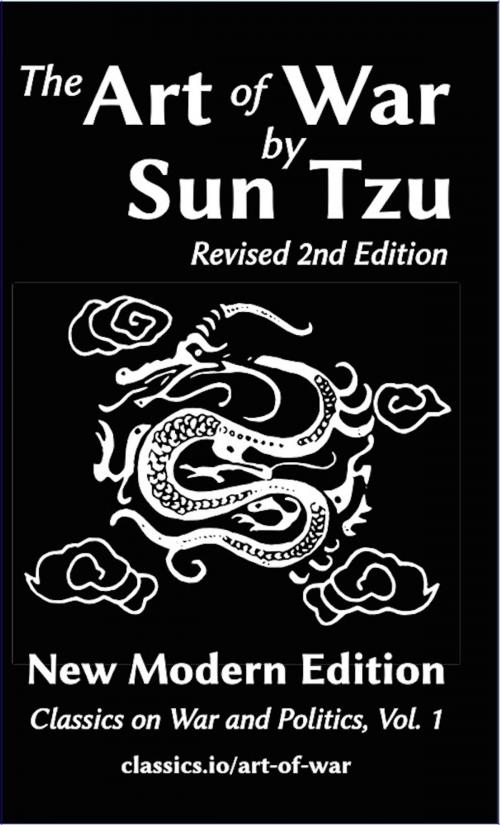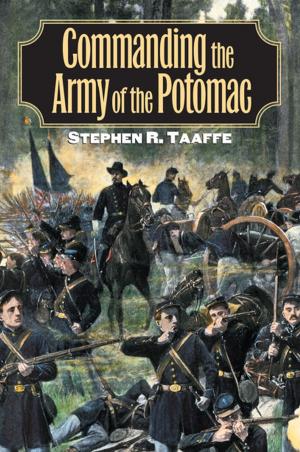| Author: | Sun Tzu | ISBN: | 1230000038456 |
| Publisher: | Classics Press LLC | Publication: | December 3, 2012 |
| Imprint: | Language: | English |
| Author: | Sun Tzu |
| ISBN: | 1230000038456 |
| Publisher: | Classics Press LLC |
| Publication: | December 3, 2012 |
| Imprint: | |
| Language: | English |
The Art of War is a classic of military strategy. It is ascribed to Sun Tzu, also called Sunzi or Sun Wu, a quasi-legendary figure. The work has been dated from between the 6th to the 3rd century BCE. It is known worldwide and is considered required reading for students of political and military science.
As with other classics, many of its themes are timeless. Quotations from the work can be meaningful apart from the thousands of years which separate us from the time and place of its creation.
The Art of War is itself a brief work. However, it is generally packaged with extensive commentary and additional essays, so that it appears to be a book of around 200 pages or more. (This new modern edition is only 40 pages in length.)
Much of what is added to these editions is only interesting to academics or students of the minutiae of history. At the same time, the intentions of readers tends to be to find out what it is that makes this work such a classic, not learn about the history of its commentaries.
This new edition meant to address the needs of the modern reader. By honing the language down to clear formulations, The Art of War can be more readily understood, more enjoyable to read, and more relevant to today.
The English is based on the original translation by Lionel Giles. The 1910 English prose of Giles is awkward to our modern ears, and slows down our reading and appreciation of this classic.
The new modern edition of The Art of War is meant to communicate the authentic essence and meaning of this work in modern, accessible English prose. This version is an abridgement, a shortened form of a work which nevertheless retains the same meaning and upholds the unity of the original.
Abridgement is foremost a cutting away of the inessential parts, which ends up in condensing the work. The key to abridging is to ensure the prose is extremely clear and transparent in meaning, requiring little additional guidance or interpretation to reach understanding.
The Art of War is a classic of military strategy. It is ascribed to Sun Tzu, also called Sunzi or Sun Wu, a quasi-legendary figure. The work has been dated from between the 6th to the 3rd century BCE. It is known worldwide and is considered required reading for students of political and military science.
As with other classics, many of its themes are timeless. Quotations from the work can be meaningful apart from the thousands of years which separate us from the time and place of its creation.
The Art of War is itself a brief work. However, it is generally packaged with extensive commentary and additional essays, so that it appears to be a book of around 200 pages or more. (This new modern edition is only 40 pages in length.)
Much of what is added to these editions is only interesting to academics or students of the minutiae of history. At the same time, the intentions of readers tends to be to find out what it is that makes this work such a classic, not learn about the history of its commentaries.
This new edition meant to address the needs of the modern reader. By honing the language down to clear formulations, The Art of War can be more readily understood, more enjoyable to read, and more relevant to today.
The English is based on the original translation by Lionel Giles. The 1910 English prose of Giles is awkward to our modern ears, and slows down our reading and appreciation of this classic.
The new modern edition of The Art of War is meant to communicate the authentic essence and meaning of this work in modern, accessible English prose. This version is an abridgement, a shortened form of a work which nevertheless retains the same meaning and upholds the unity of the original.
Abridgement is foremost a cutting away of the inessential parts, which ends up in condensing the work. The key to abridging is to ensure the prose is extremely clear and transparent in meaning, requiring little additional guidance or interpretation to reach understanding.















